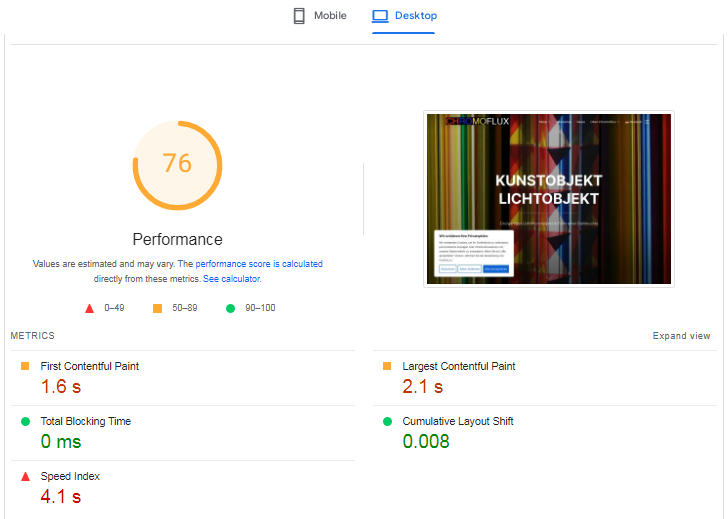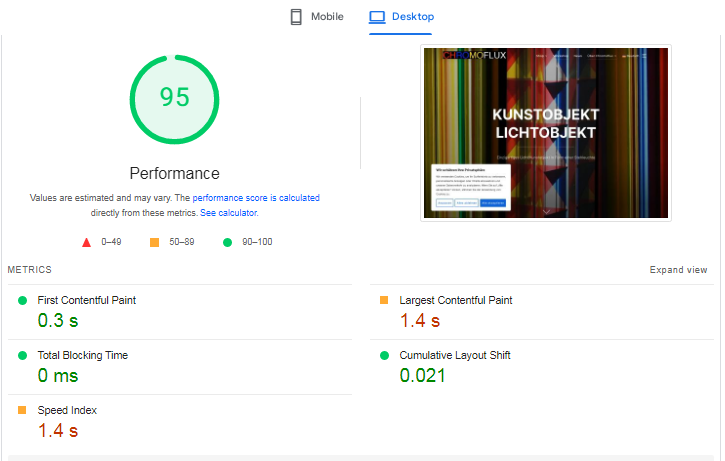Our IndexReloaded plugin has been waiting for a review by the wordpress.org team since the beginning of April. As there are another 500 or so plug-ins in the queue, this may take a moment. We expect to receive an answer in May.
This gives us the opportunity to introduce the IndexReloaded backend.
IndexReloaded appears after its installation and activation in the WordPress menu bar and has 2 sub-items: Overview and Settings.
Under Overview, the first tab displays the usage figures for files and – in the licensed version – also for the ObjectCache. Here you can tidy up if necessary.

The 2nd tab provides information about the licensing status of the plugin and in the 3rd tab IndexReloaded shows a first recommendation for the Excludelist – a list of “identifiers” with which certain JavaScript and CSS files can be excluded from processing by IndexReloaded.

The settings include 6 tabs.
In General Settings, you control the storage location and storage time of the CSS and JavaScript files created by IndexReloaded.
A license key can be stored here and the plugin can be completely deactivated or activated.

The options under “CSS and JS Processing” control whether and how JavaScript and CSS are processed.
Here is also the centrally important Exclude List, which is used to specify specific elements that cause JavaScript errors or display errors when processed by IndexReloaded.
Pages that cannot be processed by IndexReloaded without errors can be completely excluded from processing.
With options for defferal (delayed loading) of JavaScript files, this process can be properly optimized according to the requirements resulting from the website architecture.
The minification of JavaScript and CSS can also be switched on or off here using the corresponding options.


The options for Critical CSS are only available in the licensed version.
But we provide a free licensing key on our website and – even if IndexReloaded is not licensed – the available performance gain is already 60 – 70% of the licensed version with Critical CSS.
- The CCSS created by IndexReloaded is such that the non-critical CSS no longer contains selectors that are displayed as critical after the website has been loaded (in the Google Inspector coverage tool).
- On the other hand, it is possible that there may be selectors in the Critical CSS that Google’s coverage tool considers uncritical.
- These can be rather rare selectors that contain brackets, such as
div[class*=dodo] span.deeper a[titel=Fjord], much more often@font-faceselectors are displayed as non-critical – in both cases IndexReloaded is still somewhat generous – in the latter case Google’s coverage tool is also inaccurate
The creation of CCSS can be set and switched off, including whether the CCSS should appear directly on the webpage.
In order to retrieve any outliers from the CCSS, 3 lists are available for specifying critical tags, classes and IDs, although these are rarely required.
CSS that does not output CCSS when processing CCSS can optionally be completely removed from the CSS output

The preloading options in our first version of the plugin apply to every page that IndexReloaded processes. This will be further refined in future versions.

The HTML cleanup options can be used to remove other elements of the website, such as comments, certain meta tags, etc

Last but not least, a monitoring window is available in the frontend, which gives you an insight into individual processing times, number of data involved, etc. when IndexReladed is executed in the frontend.


At the end of this news article, we have provided you with 2 test screenshots that show what can be achieved with IndexReloaded on PageSpeed Insights
Without IndexReloaded, the countless links to CSS files and JS files lead to long waiting times on the client.

IndexReloaded eliminates “render-blocking resources” and reduces the number of calls to other files on the server.
The result is clearly noticeable and measurable.

